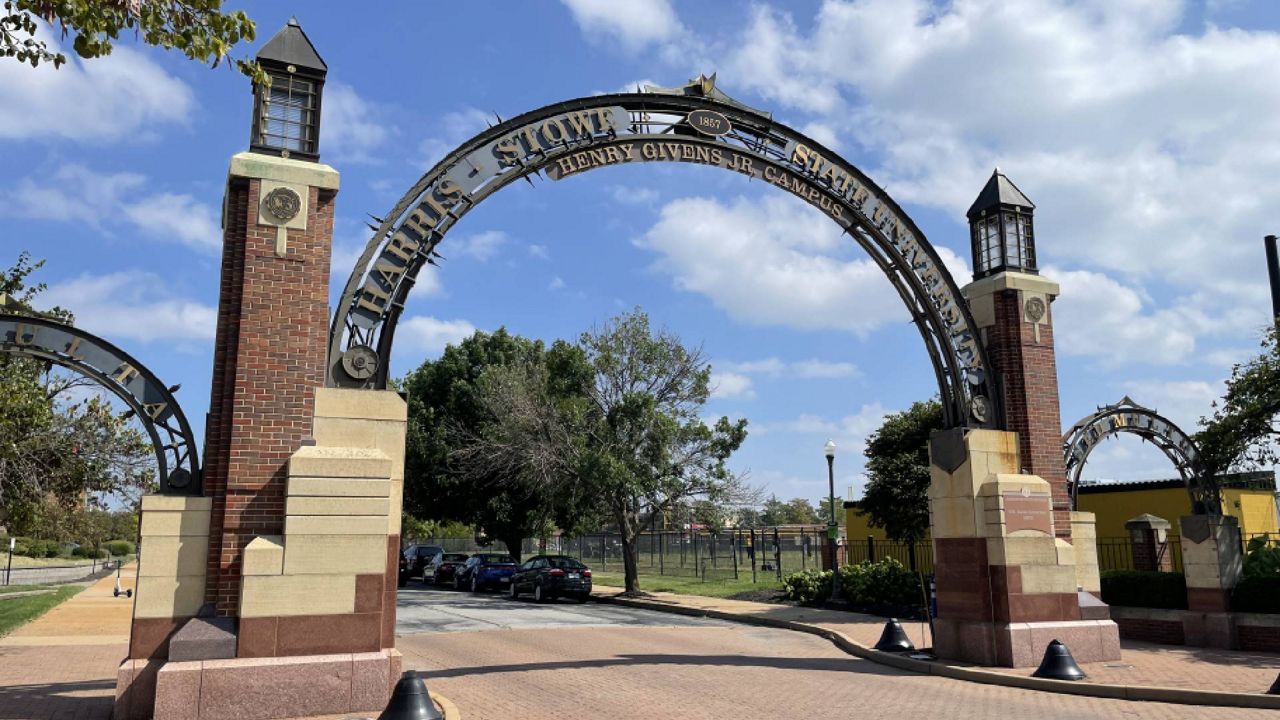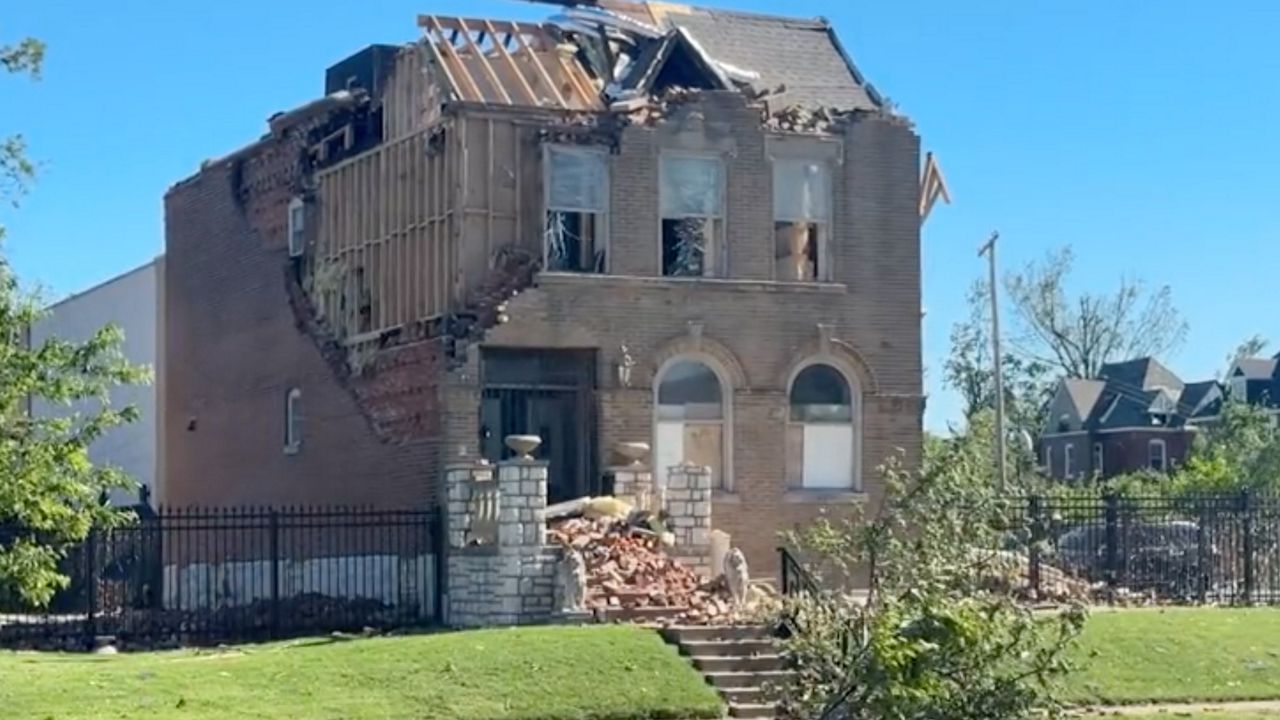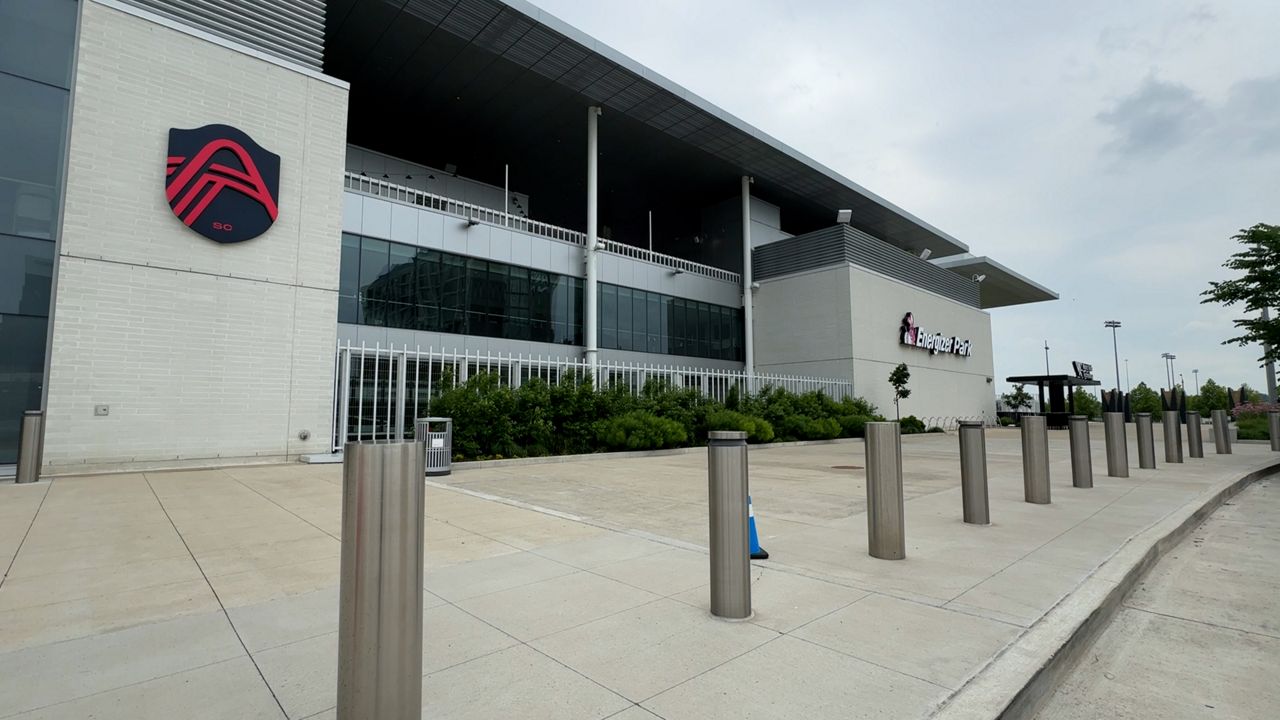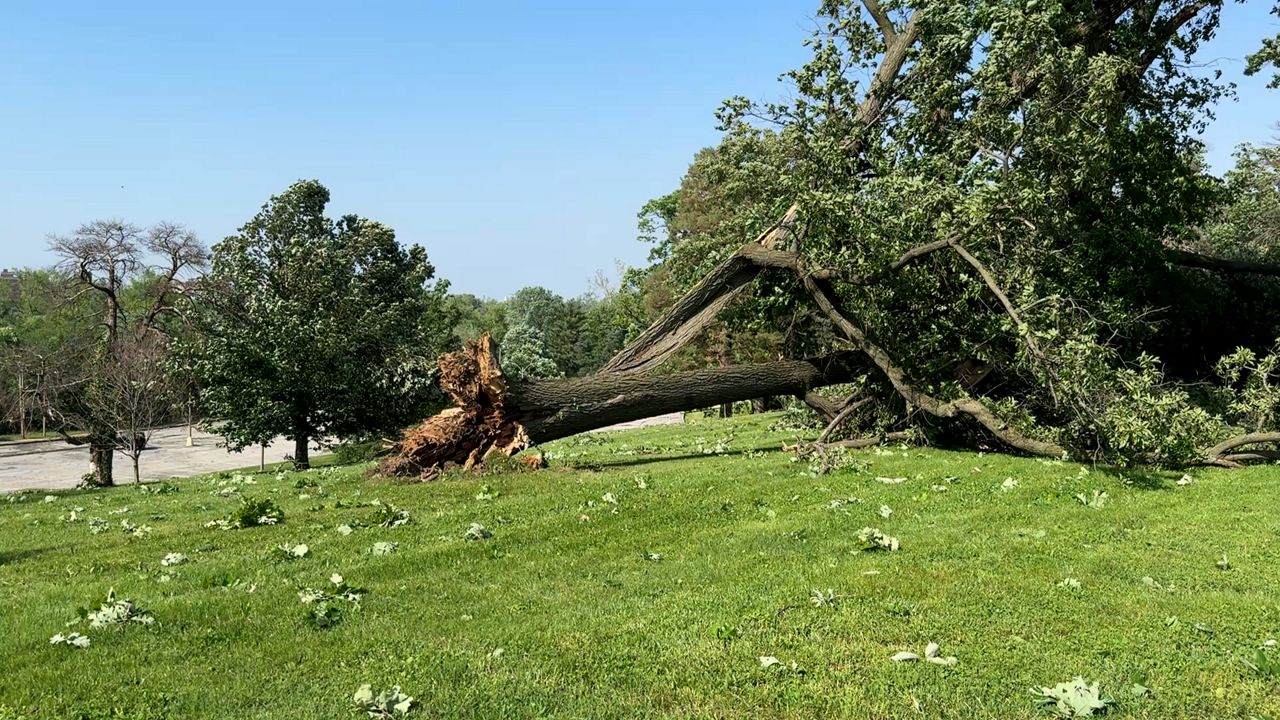ST. LOUIS — Harris-Stowe State University is helping local law enforcement departments through recruiting and flexible training opportunities close to home.
The St. Louis City Sheriff’s Office says 70 of its deputies have received the mandatory Peace Officer Standards and Training (POST) certification in St. Louis while working full-time.
Launched in 2021, Harris-Stowe State University’s Urban Policing program is in partnership with Lincoln University in Jefferson City and the St. Louis City’s Sheriff’s Office.
Harris-Stowe received $500,000 to design and implement the program “to provide students real world law enforcement practice and de-escalation and anti-bias training for officers throughout Missouri,” according to the Missouri Department of Higher Education.
Applicants can self-enroll or be sponsored, but first must pass a background check before being accepted, according to program director Dr. Nikki Brown.
“It has met the needs for the local area, and it jumps on board with the trend that we have to change how we’re training and recruiting, and retaining officers,” she said.
Brown has served as a law enforcement officer in the St. Louis region for 12 years. With a background in higher education, Brown also was a police academy instructor and supervised a police academy in Texas.
“Combining the education factor, the training factor, and the development of officers in their careers has been a passion of mine for several years,” she said.
“I enjoy seeing the development of the students.”
Students learn constitutional law, de-escalation, report writing, defensive tactics, crisis intervention training and more.
“With a team of other experts who serve in law enforcement in their different capacities, it’s one of those moments where you assist in planning the seed in the career of another. That’s a give-back opportunity for me,” Brown said.
The Urban Policing program averages 20-25 students. Now in its third class, there are 13 St. Louis Sheriff’s deputies, two marshals from the court system and one from Harris-Stowe’s Department of Safety, according to Brown.
“It better trains our people to be POST-certified with the state of Missouri and it gives them a better opportunity for learning different things and how to handle different situations as far as law enforcement goes,” said Capt. Timothy Haill with the St. Louis Sheriff’s Office.
Haill said the sheriff’s office was providing deputies with 120 hours of training and the law enforcement program extends that by more than 600 hours.
He added that the program provides the deputies with more tools and how to better handle the public.
“It gives us better trained deputies with how to handle situations here within the courthouse or out on the street, whatever we may be doing for the city of St. Louis Police Department or the city in general or just in our normal daily jobs,” Haill said.
This program provides a work-school balance that other local academies do not offer its students.
“The different academies that are in the area are full-time, so the challenge is if someone hasn’t made up their mind on what agency they want to commit to, this gives them an option to maintain full-time employment elsewhere and attend the academy during the evening,” Brown said.
The sheriff deputies work full time during the day and take classes at night.
“It’s not practical to remove someone from the street or from their position for full-time training,” Brown said. “So, the part-time gives that balance of both worlds where the agency does not lose manpower and the officer or deputy is being certified through POST.”
Haill said he has received positive feedback from deputies who have completed the program.
“They like it a lot,” he said.
Many of the instructors are from the St. Louis area, which allows deputies and open enrollment students to interact with different agencies, according to Brown. This year, there’s been an addition of instructors from the St. Louis Metro Police Department.
The program “has met the needs for the local area, and it jumps on board with the trend that we have to change how we’re training and recruiting and retaining officers,” Brown said.
She advises interested applicants to get their applications in sooner rather than later to make sure all paperwork and qualifications are met to attend the law enforcement training academy.
For more information, email Brown at urbanpolicing@hssu.edu.









